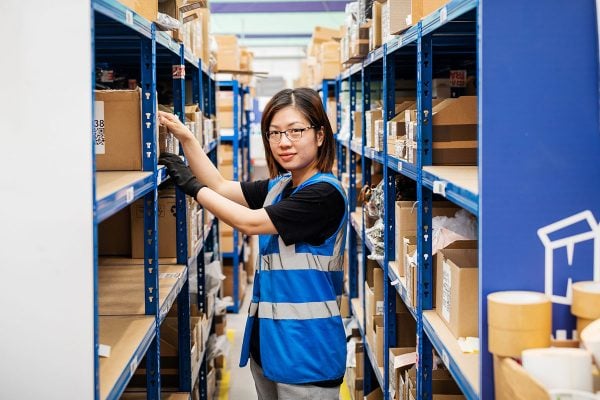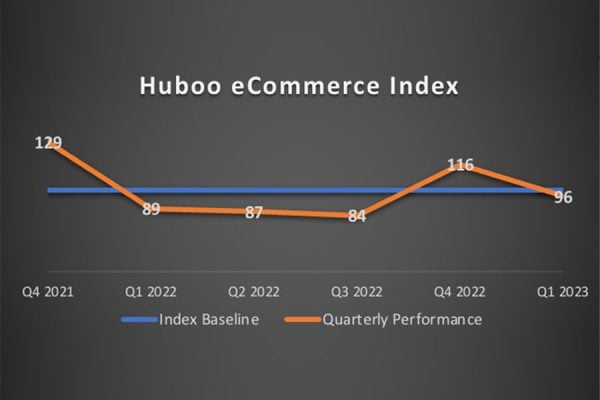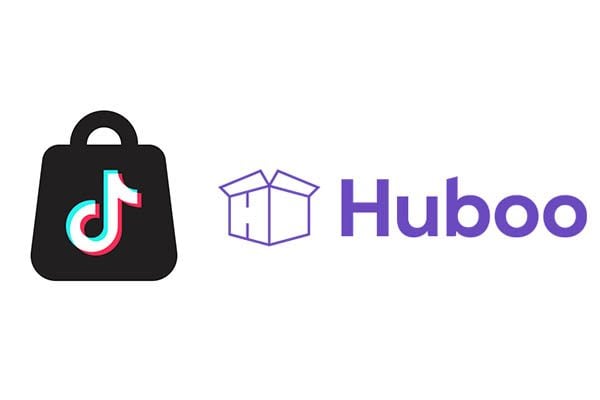The online shopping revolution has finally happened. It took a pandemic to shift customer behaviour and solidify new shopper habits, and while we may now be emerging from lockdown and social distancing restrictions, there will be no return to the days when the high street was king. Even leading high street brands are refocusing on their online presence.
 In the UK, it’s estimated that almost nine out of ten households made online purchases within the past year. At least 55% of the population are regular online shoppers.
In the UK, it’s estimated that almost nine out of ten households made online purchases within the past year. At least 55% of the population are regular online shoppers.
In this guest post today, Martin Bysh CEO of Huboo argues that for budding entrepreneurs and consumer-facing brands, this presents an incredible opportunity. Digital software has made it possible for literally anyone to set up their own ecommerce business – from anywhere:
Lifting the limitations of ecommerce growth potential
We are seeing a new generation of fleet-footed retail innovators carve out niches and earn themselves a handy living. We are witnessing a direct-to-consumer (D2C) revolution, with businesses connecting directly with their audiences to sell them everything from subscription shaving kits to limited-edition whiskies and prescription glasses.
But for all the amazing possibilities of ecommerce, limitations remain. While anyone can set up a store-front and start selling, the business of actually fulfilling the orders is far more complex.
Few ecommerce businesses can access conventional fulfilment services
Despite an explosion in the number of businesses selling online, including thousands and thousands of hobbyists and part-timers, sole traders and micro-businesses, the traditional fulfilment industry still exists to support a comparatively tiny number of major retail brands. Big companies selling simple, easy-to-categorise products, with all other ecommerce retailers turned away at the door and told to sort it out for themselves.
This is perhaps the single biggest factor limiting the growth and development of young, high-potential ecommerce businesses all over Europe. For what ecommerce retailers quickly discover, when attempting to take on the fulfilment challenge themselves, is that it’s a full-time job and a massive distraction from their core focus of trying to sustain, market and grow their business.
Adapting to changing consumer demands
Not only that, but with every consumer-facing business now competing in a digital-first retail landscape, the rules of the fulfilment game have changed. Most notably, paying for delivery is increasingly frowned upon. Consumers expect delivery to be free, returns to be free (and easy), and they’re less and less willing to wait more than 48 hours for their orders.
They also demand consistency and reliability, particularly when it comes to subscriptions. These shoppers have switched over from buying essential items at the supermarket – food supplies, medicines, toilet paper etc – to making repeat orders online. They now rely on these orders showing up, on time and as expected, every single month.
Finally, the continued growth of everyday ecommerce is being accompanied by growing calls for more sustainable packaging. Even if an ecommerce provider has outsourced its fulfilment to a third party, they’ll be the one that gets it in the neck if their customers are unhappy with the fulfilment provider’s eco-credentials.
The rise of tech-enabled, human-centric fulfilment
The fulfilment industry looks increasingly ill-suited to meet the needs of today’s ecommerce customer – outdated, inefficient, inflexible and expensive. And as businesses attempt to sell via more online channels into more markets, these shortcomings are becoming more and more exposed. It’s the limiting factor that explains why 90% of new ecommerce businesses fail in their first year.
Fortunately, another pathway is emerging. Across Europe, new fulfilment companies are springing up with propositions purpose-built for smaller or part-time sellers; for fast-growth ecommerce businesses and emerging D2C brands; for anyone let down by the prohibitive pricing and outdated practices of traditional providers.
Many of these providers are more affordable and willing to accept lower baseline order volumes, meaning that ecommerce providers can outsource their fulfilment far earlier in their growth journey. Some have even reimagined the warehousing process, using technology not to replace human workers, but to empower them, making them more efficient, better able to support customers and clients, and happier in their jobs.
For ecommerce business owners, the choice could not be more stark. Attempt to handle fulfilment in-house and risk getting swamped within an ongoing logistical nightmare, attempt (and most likely fail) to secure the services of an old-school provider, or do a bit of extra homework and seek out one of the new breed of fulfilment partners.
Today anyone can set up an ecommerce business within a few hours. But realising their business’s potential requires a new approach to fulfilment – one without shackles, constraints and limitations.









